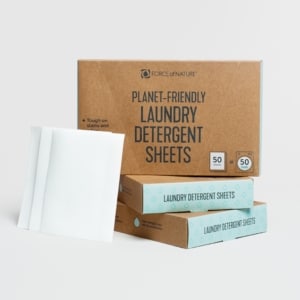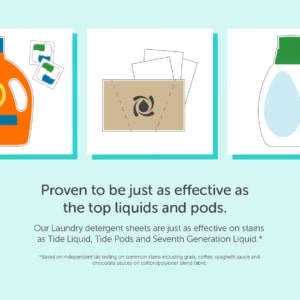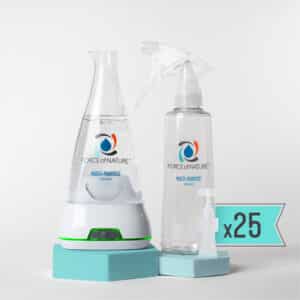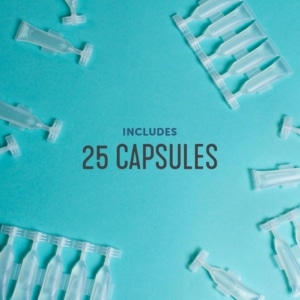
With all the wrapping paper, extra packaging, lights & food, even the greenest of us struggle to figure out how to have an eco-friendly holiday season. The good news is that with just a few simple changes, you can actually enjoy an eco-friendly and still festive holiday season. And don’t worry kids – this doesn’t mean your little plastic Legos won’t be under the tree this year. We’d miss stepping on them too much anyway!
1. Use Recycled or Upcycled Materials for Wrapping Paper: You can make some really cute & distinctive wrapping paper out of items you no longer need, like maps, newspapers & paper bags. And if you do buy wrapping paper, avoid the ones with glossy or metallic accents because they can be harder to recycle. Here are some super cute eco friendly gift wrapping ideas we love to get you started.
2. Send digital cards & invitations:This saves paper, shipping and trash. Not to mention that if you are like a lot of families, you have left getting your cards mailed until the very last minute. None of your recipients ever need to know this with digital cards! A couple of options with really unique & polished looking cards are greenvelope and paperlesspost. The recipients of your digital cards will appreciate your eco-friendly holiday approach.
3. Switch to LEDs: If you have little ones in your family, you know what a big hit festive lights are. Switching to LEDs is a great way to have a more eco-friendly holiday as well as ensure your lights last longer.
4. Go Green with Dinner Ware: Avoid disposable plates, cups, napkins & utensils. Not only do these create extra waste, but the plastic options also pose health risks. When you use plastic utensils, the toxic chemicals from the plastic can seep into food. An example of a plastic common in opaque plastic utensils is polystyrene, which shows up as code 6 on recycling guides (so if you see code 6, put down the forkful of stuffing!). Polystyrene can leach a known neurotoxin called styrene. Instead, if you need dinner ware for more people that you can typically accommodate, see if you can borrow extra from friends or family.
5. Re-Think Your Cookware: You might have already made changes to the personal care or cleaning products you buy to reduce your family’s exposure to toxic chemicals. But another category of products that you might re-consider is your cookware. Here are the types of materials to re-think and why:
- Aluminum: Aluminum is considered a neurotoxin to avoid. When you cook with aluminum, small amounts of it can leach into food. Some experts say that using anodized aluminum solves this problem, but we think if you have the choice, it’s best to err on the side of avoiding aluminum altogether.
- Ceramic cookware containing lead: Hot liquids and acidic foods cause more lead to leach. In addition, stay away from dishware that has a chalky film after it has been washed. And that favorite antique wreath-shaped plate from Grandma? Sadly experts advise not serving food out of antique ceramic serving dishes.
- Teflon: Okay we’re practical. We know that non stick cookware is FABULOUS. But you should know that the health & safety risk of Teflon changes by temperature. Especially at high temperatures, toxic particles and gasses can be released that you probably don’t want your kids around.
6. Store leftovers wisely: Cooking for family and friends typically means leftovers, but the way you store them is critical for reducing your exposure to toxic chemicals. When you reach for those storage containers, you probably already know to avoid BPA. The other types of plastic to avoid show codes 3, 6 or 7. Leftover containers marked code 3 often contain PVCs, which create dioxin, a carcinogen. They also often include chemicals that when seeped into your food can that affect liver function and disrupt hormones. Containers marked code 7 may contain BPA. Really the safest alternative would be to store leftovers in glassware. But if you can’t avoid all plastics altogether, keep these tips in mind:
- Don’t put plastic containers into the microwave
- Don’t let them heat up in a hot car
- When they crack, it’s time to recycle
7. Use non toxic cleaning products: We know the best holiday meals often come with the stickiest, grimiest, stinkiest kitchen messes. Have you ever tried to clean a stove top after making latkes, clean a pan with baked on turkey slime, or get rid of the smell from the turkey parts in the trash can? Not for the faint of heart! But don’t assume you have to reach for the hazmat cleaners to take care of holiday messes. A great non toxic option that’s just as effective as conventional cleaners is Force of Nature. It’s an eco friendly cleaner made from just salt, water and vinegar, yet as effective as bleach. With no toxic chemicals, it’s kid-safe and the perfect eco-friendly holiday helper to get you through the mayhem. It’s even great for cleaning up spilled food and drinks on rugs & furniture (thank you, Messy Visitors!) because it won’t remove color. Learn more about Force of Nature here.
Enjoy the holidays!



